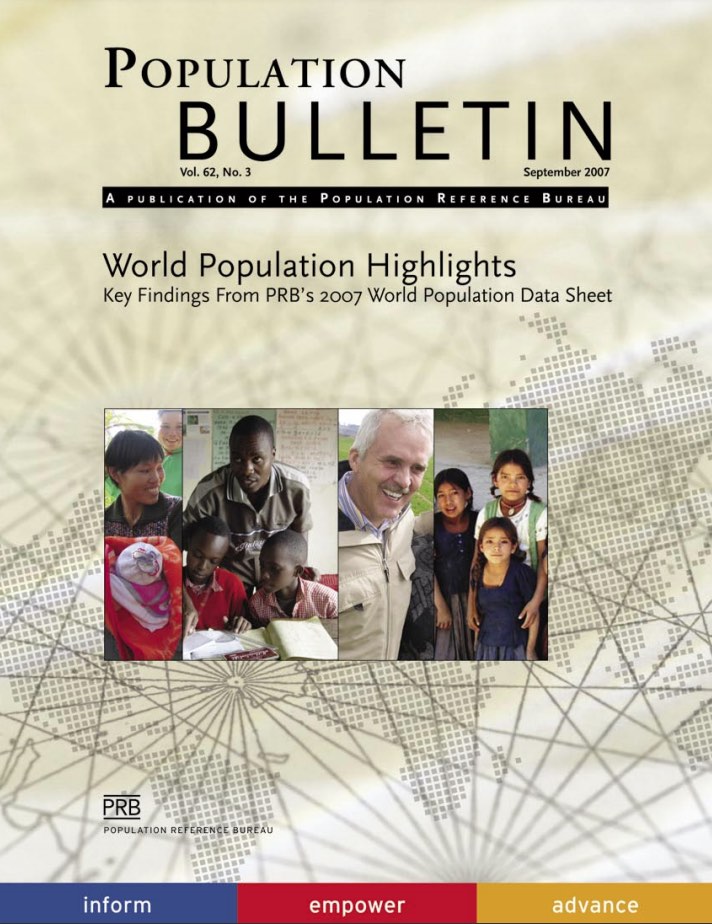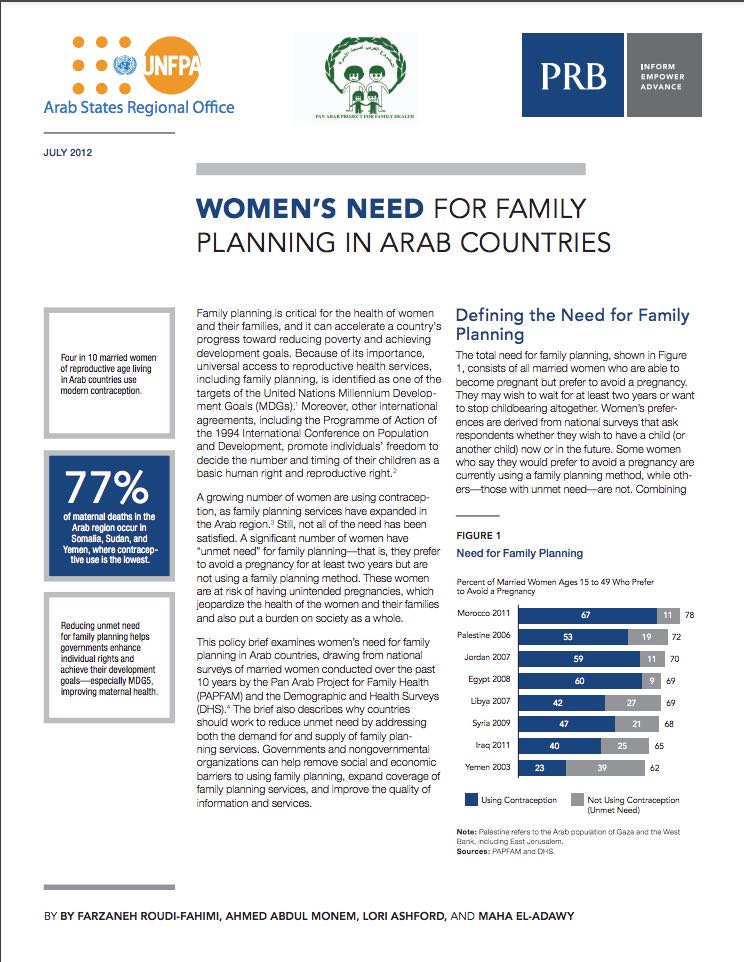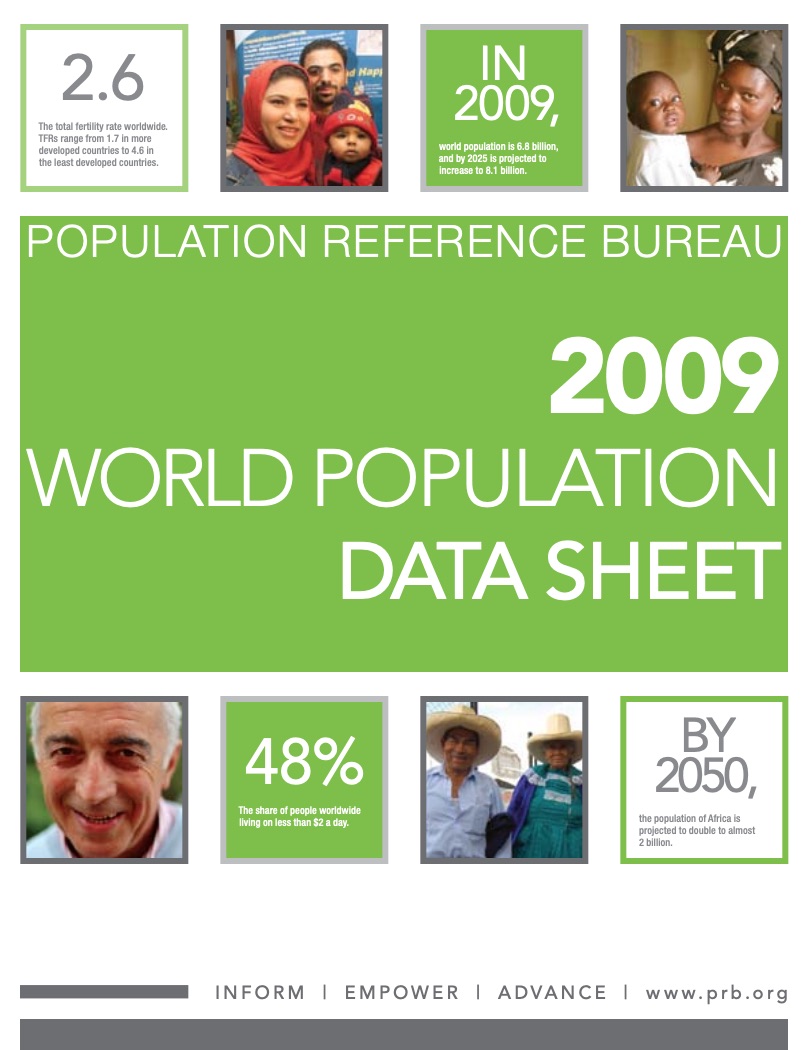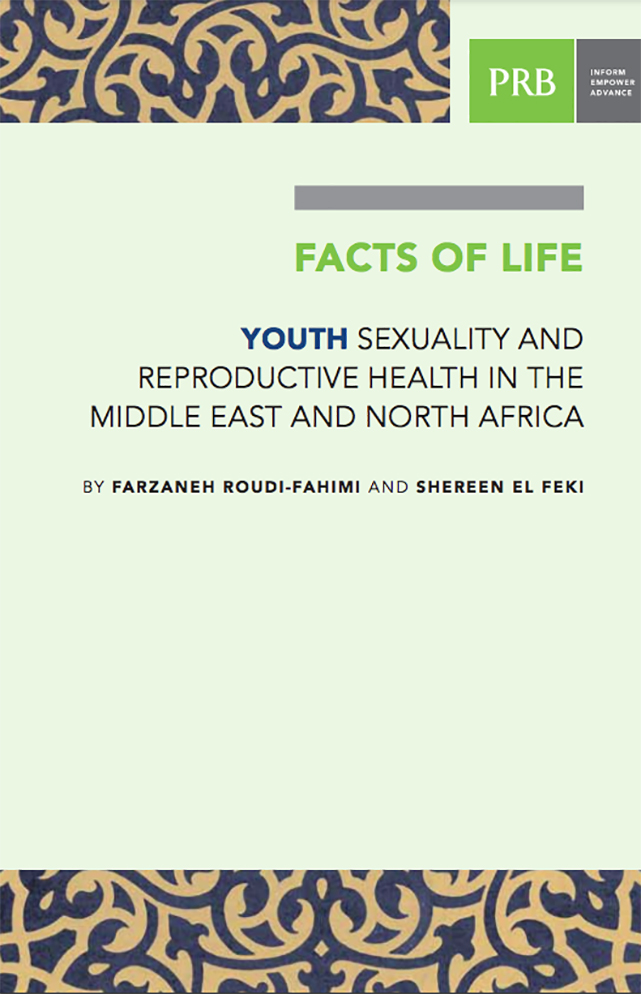504 Search Results Found For : "demographic dividend"


Report. Women’s Need for Family Planning in Arab Countries
Family planning is critical for the health of women and their families, and it can accelerate a country's progress toward reducing poverty and achieving development goals. Because of its importance, universal access to reproductive health services, including family planning, is identified as one of the targets of the United Nations Millennium Development Goals (MDGs).

2009 World Population Data Sheet
(2009) Global population numbers are on track to reach 7 billion in 2011, just 12 years after reaching 6 billion in 1999. Virtually all of the growth is in developing countries.
PRB Discuss Online: Have Reproductive Health Voucher Programs Improved Equity, Efficiency, and Impact?
(2011) Vouchers are frequently mentioned as a promising alternative finance mechanism to achieve a variety of goals in health systems and reproductive health services. Do vouchers work?
Many Peruvians Rely on Traditional Family Planning Methods
(2010) Peruvian women are having fewer children and waiting longer between pregnancies, many by using traditional family planning methods.

Project: Center for Public Information on Population Research (CPIPR)
Why Is the U.S. Birth Rate Declining?
In 2020, the U.S. TFR dropped to 1.64, the lowest level ever recorded.
Poverty in the United States and Other Western Countries
(2002) It is difficult to compare poverty levels in different countries. Countries not only have different currencies, they have different family income levels, consumption patterns, prices for goods and services (which affect purchasing power), spending patterns, and family and demographic characteristics.

Report. Facts of Life-Youth Sexuality and Reproductive Health in the Middle East and North Africa
(2011) One in five people living in the Middle East and North Africa (MENA) region, or nearly 90 million in 2010, is between the ages of 15 and 24, a demographic group called "youth." No longer children, but not yet independent adults, these young people are at a crucial juncture in their lives.
